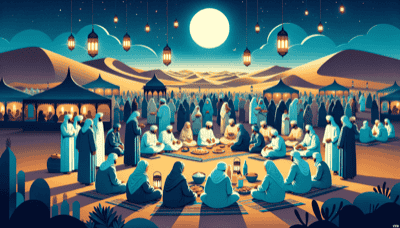We're here to help you keep count of the days to or since a date. Just click the button below and enter your chosen date to get started. Also choose the suggested days or search for a special day above #countingthedays

Eid al-Fitr, known as "Ramazan Festival" in Sri Lanka, is a significant religious holiday celebrated by the Muslim community to mark the end of Ramadan, the Islamic holy month of fasting. It falls on the first day of Shawwal, the tenth month of the Islamic lunar calendar.
The history of Eid al-Fitr in Sri Lanka is closely tied to the arrival of Arab traders and settlers who brought Islam to the island hundreds of years ago. Over time, their religious practices blended with local customs, creating unique traditions.
On this day, Muslims in Sri Lanka begin with an early morning prayer called "Salat al-Eid." This prayer is usually performed in large congregations at mosques or open fields known as "Eidgah." Following this, a sermon is delivered by an Imam.
It's customary for Muslims to wear new clothes and visit friends and family as a sign of unity and forgiveness. Homes are cleaned and decorated, while children often receive gifts or money called "Eidi."
Charitable Giving: A significant part of Eid al-Fitr is giving Zakat al-Fitr (charity) before the Eid prayers so that those less fortunate can also celebrate.
Feasting: After a month of fasting from dawn to sunset, Muslims prepare special meals which often include traditional sweets like "watalappam" (a coconut custard pudding) and "kiribath" (milk rice).
Socializing: Families visit each other's homes sharing food and good wishes. It's a time for reconciliation and fostering community spirit.
Public Holiday: In Sri Lanka, Eid al-Fitr is recognized as a public holiday. Government offices, businesses owned by Muslims, and schools are closed on this day.
Muslims across Sri Lanka embrace the festive spirit of Eid al-Fitr with enthusiasm while respecting the diverse cultural tapestry that characterizes their nation.